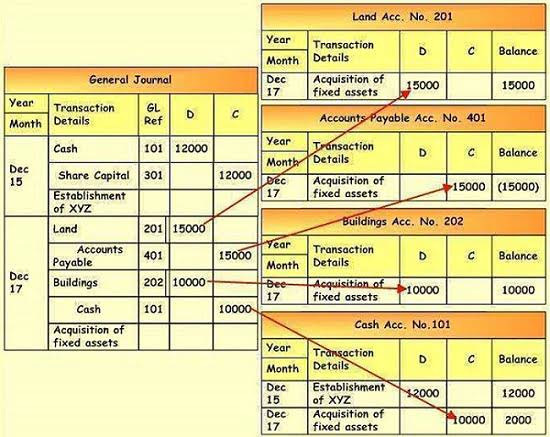Is a CPA the Same as an Accountant? There Is a Difference
Content

He is a CFA charterholder as well as holding FINRA Series 7, 55 & 63 licenses. He currently researches and teaches economic sociology and the social studies of finance at the Hebrew University in Jerusalem. Earning a CFA or a CPA can be a great choice for professionals who are seeking to take the next step in their careers.
- A Certified Public Accountant is an accountant who has met state licensing requirements.
- Most audits are performed by CPAs, although accountants can sometimes perform in-house audits.
- In most states, this includes 150 credit hours in college-level accounting courses.
- For example, Alaska requires CPAs to get 80 hours of CPE every two years, with a minimum of 20 hours per year.
- Becoming a CPA involves a level of concentration and work ethic that permanently sets accountants apart from their peers.
While an accountant can prepare your business tax return, only a CPA can defend that return should the IRS or your state tax authorities have questions or concerns. Accounting, AuditingAccounting is recording, maintaining and reporting the financial affairs, depicting the precise financial position of the company. In contrast, auditing is the systematic examination of accounts books and other documents to check whether the statement shows the correct information or not. Often, https://www.bookstime.com/ accountants with no certification perform tasks such as bookkeeping, looking after general accounting matters, and taking care of some tax-related matters. However, all accountants with some training and experience can perform an extensive range of services. Regardless of their line of work, all CPAs are held to a strict code of ethics by the American Institute of Certified Public Accountants, state boards of accountancy, state CPA societies, and other regulatory agencies.
What Is A Certified Public Accountant?
While CPAs have accounting degrees, their certification differs from traditional accountants. Renamed several times over the years, the organization has been known as the American Institute of Certified Public Accountants since 1957. The certified public accountant is a professional designation given to qualified accountants. A CFA is recognized internationally and can apply to a wide range of positions within the investment management sector as well as the finance industry in general. A Certified Public Accountant is an accounting professional who has met state licensing requirements to earn the CPA designation through educational training, experience and passing the CPA Exam. Over 40 of the state boards now require applicants for CPA status to complete a special examination on ethics, which is effectively a fifth exam in terms of requirements to become a CPA. The majority of these accept the AICPA self-study Professional Ethics for CPAs CPE course or another course in general professional ethics.
A CPA is also allowed to perform certain duties that regular accountants are not permitted to do. Ageras is an international financial marketplace for accounting, bookkeeping and tax preparation services. User reviews of professionals are based solely on objective criteria. In a perfect world, businesses would use accountants to manage day-to-day financial operations and CPAs for tax preparation, audits, and general consulting.
Accountant Essential Skills
When making your decision, also realize that you are not tied down to a single type of accountant. The bookkeeper can handle the day-to-day tasks at a more affordable rate and you can call in the big guns when you need professional business advice. A professional accountant or CPA will be able to analyze your business finances and offer business advice. Like CPAs, EAs are able to legally represent taxpayers before the IRS. They also have to undergo rigorous education and a certification exam and are licensed by the federal government rather than individual states.
- At other times, the decision is simple, such as under the following circumstances.
- In some states, the requirements include being a United States citizen, a resident of the state, or both in order to take the exam.
- If you’re trying to decide whether a graduate degree is right for you, read about a Becker student’s experiencepursuing a master’s in accounting.
- The exam lasts 14 hours, and half the test takers fail a section on the first try.
- Preparing for the CPA exam and preparing to work as a CPA after graduation can be different, making this difficult for professors and schools to figure out what to include in their curricula.
- In the assurance service category CPAs attest financial statements, however, the accountant does have authority to attest financial statements.
- The four parts of the CPA exam are attestation and auditing, financial accounting and reporting, regulation and business environment and concepts.
They need to pass rigorous testing and strict requirements for licensing in the state in which they intend to practice. In some states, the requirements include being a United States citizen, a resident of the state, or both in order to take the exam. CPA applicants must complete 150 hours of university coursework, including specific hours in upper-level accounting, auditing, and business core courses. Typically, an accountant has achieved a bachelor’s degree in accounting.
You won’t always need a CPA
The financial rewards of the CPA credential start out great and get better over time. Many companies incentivize employees to pass the CPA Exam by offering a completion bonus of several thousand dollars.
- Let’s get a more detailed look into their differences and what they mean.
- Profit and loss sheets, or P&Ls, are basic summaries of the money that businesses obtain and spend, but financial records can become much more complex.
- Continuing professional education is also required to maintain licensure.
- “If you have a home office, you can deduct for the square footage you use for work as well as a portion of your utilities, mortgage interest, and property taxes,” said Stewart.
- Further, its reports do not reveal the differences between entry-level accountants and those with years of experience.
- Merchant Maverick’s ratings are editorial in nature, and are not aggregated from user reviews.
The average salary for entry-level CPAs is about $64,000, but the entry-level CPA salary range spans from $44,000 to $84,500 depending on where you live and work. “An accountant can help you analyze your spending choices and even act as a consultant,” said Stewart. Best of all, they’ll be by your side if the tax man ever comes after you. You can definitely DIY in all these tax scenarios and save the fees, but with CPAs and EAs, the extra cost may be worth it. “That opens you up to special credits and deductions and requires more recordkeeping. If you mess something up or miss out on deductions, it can cost more than hiring an accountant would have.”
Accounting vs CPA
These promotions come with higher salary, increased authority and responsibility, and excellent experience. CPAs can prepare tax documents, file tax returns, and strategize ways to minimize your tax liability for the following year. Also, CPAs can represent you if the IRS has questions about your return or if you or your business are audited, which is an important consideration. Different financial analysts often provide different forecasts regarding the numbers reported in publicly traded companies’ quarterly and annual reports. When many financial analysts give forecasts for one data point, a CFA can then calculate an analyst consensus estimate.

Each state has a board of accountancy that sets the specific standards for the state. A CPA makes 10 to 15 percent higher income than an accountant who is not certified. In North Carolina, for example, you CPA vs Accountant need a bachelor’s degree with at least 30 hours of accounting-related courses or 20 hours of graduate accounting courses. Years ago, a bookkeeper literally kept business accounts in a hard-copy ledger.
CPA Salary & Income Report
However, it’s important to consider where each one can apply in terms of industry and job function. A CFA is likely to receive and analyze reports produced by a CPA or other accountant. Public companies produce annual reports that are often prepared by CPAs, and on the basis of these reports, CFAs then make recommendations to clients on how to invest in securities offered by these companies. Timothy Li is a consultant, accountant, and finance manager with an MBA from USC and over 15 years of corporate finance experience.

So, while you won’t always need a CPA, understanding that there are times when you will need one is important for all small business owners. Don’t underestimate how important this may be if you are ever audited by the IRS or your state tax authority. CPAs are regarded as having the legal responsibility and authority to act on behalf of and in clients’ best interests. Accountants without a CPA license are not considered fiduciaries to their clients, even though they may maintain certain ethical standards.
Merchant Maverick’s ratings are editorial in nature, and are not aggregated from user reviews. Each staff reviewer at Merchant Maverick is a subject matter expert with experience researching, testing, and evaluating small business software and services. The rating of this company or service is based on the author’s expert opinion and analysis of the product, and assessed and seconded by another subject matter expert on staff before publication. Merchant Maverick’s ratings are not influenced by affiliate partnerships.

